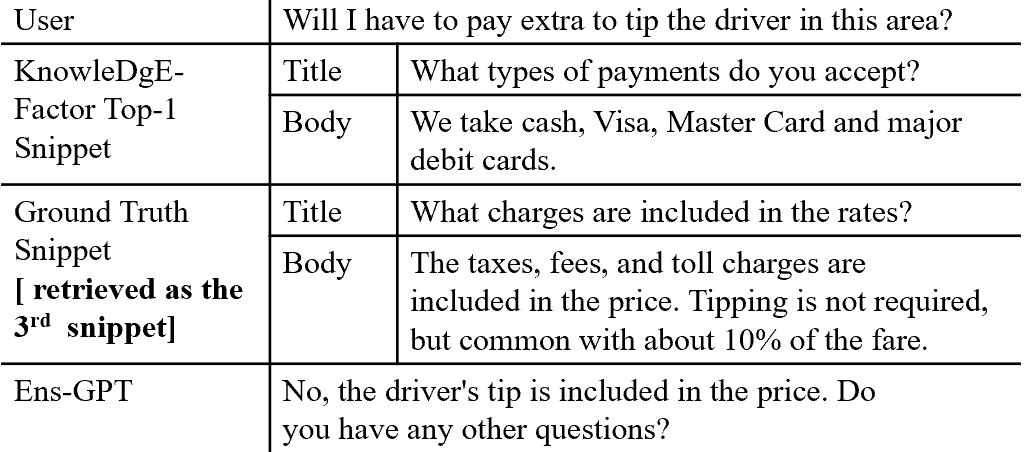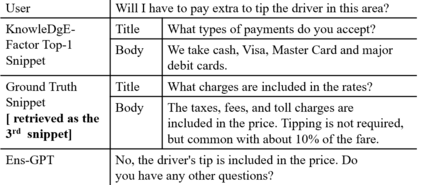Dialog systems enriched with external knowledge can handle user queries that are outside the scope of the supporting databases/APIs. In this paper, we follow the baseline provided in DSTC9 Track 1 and propose three subsystems, KDEAK, KnowleDgEFactor, and Ens-GPT, which form the pipeline for a task-oriented dialog system capable of accessing unstructured knowledge. Specifically, KDEAK performs knowledge-seeking turn detection by formulating the problem as natural language inference using knowledge from dialogs, databases and FAQs. KnowleDgEFactor accomplishes the knowledge selection task by formulating a factorized knowledge/document retrieval problem with three modules performing domain, entity and knowledge level analyses. Ens-GPT generates a response by first processing multiple knowledge snippets, followed by an ensemble algorithm that decides if the response should be solely derived from a GPT2-XL model, or regenerated in combination with the top-ranking knowledge snippet. Experimental results demonstrate that the proposed pipeline system outperforms the baseline and generates high-quality responses, achieving at least 58.77% improvement on BLEU-4 score.
翻译:以外部知识丰富的对话系统可以处理支持数据库/API系统范围之外的用户查询。 在本文件中,我们遵循DSTC9第1轨提供的基准,并提议三个子系统,即 KDEAK、NowleDgEFactor和Ens-GPT, 它们是为能够获取非结构化知识的任务导向对话系统的管道。 具体地说, KDEAK通过利用来自对话、数据库和FAQs的知识将问题描述成自然语言来进行知识搜索转弯检测。 KnoleDgEFactor通过用三个模块进行域、实体和知识层面分析,从而解决了知识选择知识的问题。 En-GPT产生了一种反应,即首先处理多个知识片段,然后采用共同算法,确定响应是否完全来自GPT2-XL模型,或与高级知识片段一起重新生成。 实验结果表明,拟议的管道系统超越了基线,产生高质量的反应,至少达到58.77%的BLEU-4评分数。




